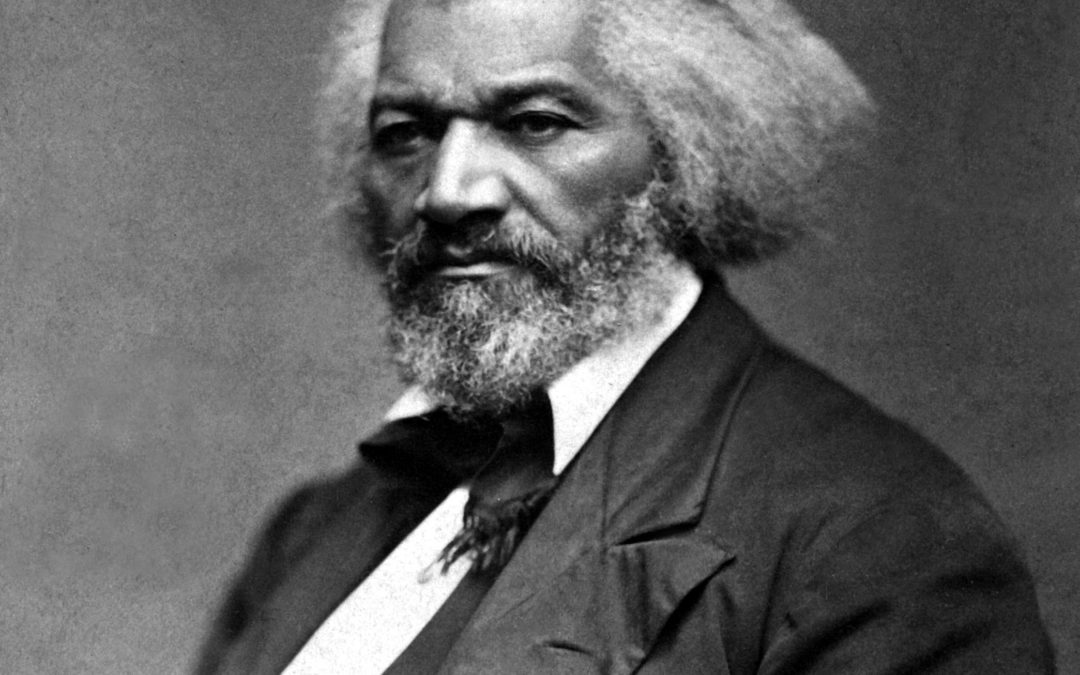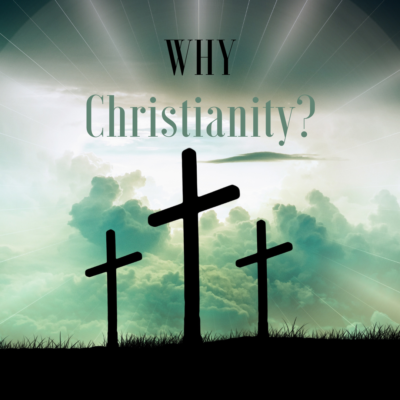
by Suellen | Biography, Faith, Quotes
Frederick Douglass was one of the great movers, shakers, and thinkers of the 19th century. As a young slave in Maryland, he learned to read – and began to teach his fellow slaves by reading the Bible.
Determined to be free from slavery, young Douglass escaped and fled to New York to a safe community for freed slaves.
Then his attentions turned to freeing others.
Frederick Douglass established a newspaper, North Star, and became a writer and orator. Douglass traveled the United States and into Europe speaking for the abolition of slavery – and for women’s rights.
He wrote several autobiographies, sharing his stories of slavery, deliverance, and his Christian views.
Douglass was truly a remarkable man. One who stood up before his time. Before it was fashionable.
His quotes are significant nearly 2 centuries later.
One is especially significant today.
I have one great political idea. . . . That idea is an old one. It is widely and generally assented to; nevertheless, it is very generally trampled upon and disregarded.
The best expression of it, I have found in the Bible.
It is in substance, “Righteousness exalteth a nation; sin is a reproach to any people” [Proverbs 14:34].
This constitutes my politics – the negative and positive of my politics, and the whole of my politics. . . .
I feel it my duty to do all in my power to infuse this idea into the public mind, that it may speedily be recognized and practiced upon by our people.
An amazing man. An amazingly accurate outlook.
[Frederick Douglass, The Frederick Douglass Papers, John Blassingame, editor (New Haven: Yale University Press, 1982), Vol. 2, p. 397, from a speech delivered at Ithaca, New York, October 14th, 1852.]

by Suellen | Awakening, Quotes
When we delve into the history of our country, it’s remarkable how many of our leaders were devout Christians. To know that for certain, we can take a look at some of their comments. Let’s take a look at some words from our fathers. You may be surprised.
John Hancock
Signer of the Declaration of Independence
I John Hancock, . . . being advanced in years and being of perfect mind and memory-thanks be given to God-therefore calling to mind the mortality of my body and knowing it is appointed for all men once to die [Hebrews 9:27], do make and ordain this my last will and testament…Principally and first of all, I give and recommend my soul into the hands of God that gave it: and my body I recommend to the earth . . . nothing doubting but at the general resurrection I shall receive the same again by the mercy and power of God. . .
Will of John Hancock
Patrick Henry
Governor of Virginia, Patriot
This is all the inheritance I can give to my dear family. The religion of Christ can give them one which will make them rich indeed.
Will of Patrick Henry
Robert Treat Paine
Signer of the Declaration of Independence
I desire to bless and praise the name of God most high for appointing me my birth in a land of Gospel Light where the glorious tidings of a Savior and of pardon and salvation through Him have been continually sounding in mine ears.
Robert Treat Paine, The Papers of Robert Treat Paine, Stephen Riley and Edward Hanson, editors (Boston: Massachusetts Historical Society, 1992), Vol. I, p. 48, March/April, 1749.
[W]hen I consider that this instrument contemplates my departure from this life and all earthly enjoyments and my entrance on another state of existence, I am constrained to express my adoration of the Supreme Being, the Author of my existence, in full belief of his providential goodness and his forgiving mercy revealed to the world through Jesus Christ, through whom I hope for never ending happiness in a future state, acknowledging with grateful remembrance the happiness I have enjoyed in my passage through a long life. . .
Will of Robert Treat Paine
Benjamin Rush
Signer of the Declaration of Independence
My only hope of salvation is in the infinite, transcendent love of God manifested to the world by the death of His Son upon the cross. Nothing but His blood will wash away my sins. I rely exclusively upon it. Come, Lord Jesus! Come quickly!
Benjamin Rush, The Autobiography of Benjamin Rush, George Corner, editor (Princeton: Princeton University Press for the American Philosophical Society, 1948), p. 166, Travels Through Life, An Account of Sundry Incidents & Events in the Life of Benjamin Rush.
Roger Sherman
Signer of the Declaration of Independence, Signer of the Constitution
I believe that there is one only living and true God, existing in three persons, the Father, the Son, and the Holy Ghost. . . . that the Scriptures of the Old and New Testaments are a revelation from God. . . . that God did send His own Son to become man, die in the room and stead of sinners, and thus to lay a foundation for the offer of pardon and salvation to all mankind so as all may be saved who are willing to accept the Gospel offer.
Lewis Henry Boutell, The Life of Roger Sherman (Chicago: A. C. McClurg and Company, 1896), pp. 272-273.
John Witherspoon
Signer of the Declaration of Independence
I entreat you in the most earnest manner to believe in Jesus Christ, for there is no salvation in any other [Acts 4:12]. . . . [I]f you are not reconciled to God through Jesus Christ, if you are not clothed with the spotless robe of His righteousness, you must forever perish.
John Witherspoon, The Works of John Witherspoon (Edinburgh: J. Ogle, 1815), Vol. V, pp. 276, 278, The Absolute Necessity of Salvation Through Christ, January 2, 1758.
Many thanks to http://www.wallbuilders.com for providing these documents.






